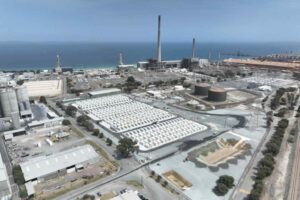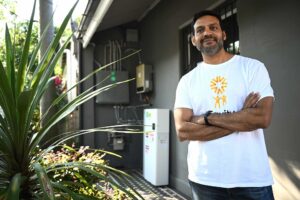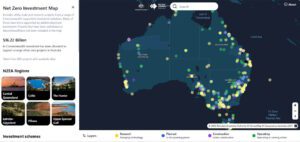Federal Labor leader Anthony Albanese is set to outline Labor’s recommitment to achieving zero net emissions by 2050, in a major speech outlining the party’s climate policies on Friday.
As flagged in the Guardian, Albanese will deliver the latest in a series of major policy speeches to the Per Capita think tank in Melbourne on Friday, that is also expected to confirm Labor’s opposition to the use of carry-over credits to meet future emissions reduction targets.
In the speech, Albanese is expected to confirm that Labor will oppose the allocation of taxpayer funds to support the construction of new coal-fired generators, such as a new coal-fired power station for the North Queensland town of Collinsville that is receiving funding support from the Morrison Government.
Albanese said in an interview with ABC’s RN Breakfast program last week that he would not support the construction of a new coal-fired power station, comparing the notion to a “unicorn”.
“You might as well ask me if I support unicorns,” Albanese said. “We have a position which is that it does not stack up. It will not proceed.”
“What Labor wants to see is investment in clean energy. I do not think there is a place for new coal-fired power plants in Australia. Full stop.”
In addition to confirming Labor’s opposition to new coal generators, Albanese is expected to outline Labor’s recommitment to a net zero emissions target by 2050.
The Labor leader appeared to be dismissive of a move by Independent MP to introduce a private member’s bill into parliament, with the aim of securing a conscience vote to enshrine a commitment to reaching zero net emissions by 2030 into law.
During the interview with ABC’s RN Breakfast program, Albanese said that while Steggall’s legislation was “very well intentioned”, Labor felt that it was necessary to be “realistic” about the unlikelihood the Morrison government would ever agree to bring on debate of the bill.
“You know that that bill will never be voted on,” Albanese told ABC’s RN Breakfast program. “That’s what happens with private members bills in the House of Representatives.
“The way that you change climate policy in this country is to change the government and to elect a Labor government.”
Albanese is also expected to use the speech to confirm Labor’s position in opposing the use of carryover Kyoto Protocol units to meet future emissions reduction targets.
The Morrison government has attracted criticism for its plan to use surplus Kyoto-era emissions permits to meet its 2030 emissions reduction target, that effectively allows the government to short-cut its pledge to reduce emissions by between 26 and 28 per cent by 2030.
In the most recent greenhouse gas emissions projections produced by the Department of the Environment and Energy, Australia is on track to reduce its emissions by just 16 per cent by 2030, with the Morrison government planning to use 411 million tonnes of “surplus” emissions from previous targets to bridge the gap to 26 per cent.
However, it appears that no decision has been reached on federal Labor’s interim emissions reduction targets, nor its target of reaching 50 per cent renewable electricity by 2030.
Labor took a 45 per cent emissions reduction target by 2030 to the 2019 federal election. However, there has been speculation the party would scrap that target given it was unlikely to be in a position to form government until 2022, at the earliest. Some within Labor have argued that the reduced timeframe makes it unreasonable to meet a 45 per cent reduction target within the eight-year window.
But this was a proposition slammed by Greens leader Adam Bandt, who questioned the ability of any government to deliver on a goal to limit warming to well below 2 degrees without an interim emissions target.
“By saying ‘we’ll pick up where the Liberals leave off in 2022, abandon our 45% by 2030 target but get to net-zero in 2050’, Labor would blow the 2 degrees budget and give up on the Paris agreement,” Bandt said.
“Without strong 2030 targets, a 2050 target is next to meaningless. Unless we act in the next decade, it will be too late to stop runaway global warming.”
“As our projections demonstrate, a linear trajectory from 2022 to net zero emissions by 2050 is not climate ambition but complete climate failure, blowing the 2 degree carbon budget and locking us into climate catastrophe,” Bandt added.
There has been pressure within the Labor caucus, including from a potential new pro-coal faction dubbed the ‘Otis’ group, who have blamed the ambitious climate change policies for Labor’s loss in the 2019 election, after a failure to win additional seats in Queensland.
Labor may retain its 2030 renewable electricity target. Despite being labelled ‘economy wrecking’ by the Morrison government, the most recent projections of Australia’s greenhouse gas emissions predicts that Australia is already on track to reach that milestone by 2030.








